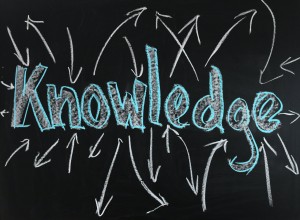6.7 Disciplines of Knowledge
Another major aspect of identifying possible contributors involves drawing the boundaries for the information strategy.
It is never possible to examine an idea in its entirety. You have to carve out a manageable portion of an idea if you are going to make your deadline and do a credible job with the message. When drawing these boundaries for the strategy, it helps to think about how and where information is produced. For this, you need to identify the disciplines of knowledge production in a subject area.
Information does not exist in the environment like some kind of raw material. It is produced by individuals who work within a particular field of knowledge

and who use specific methods for generating new information. Disciplines are knowledge-producing and -disseminating systems. Looking through a college course catalog gives clues to discipline structure. Fields such as political science, biology, history and mathematics are unique disciplines with their own logic for how and where new knowledge is introduced and made accessible.
You must become comfortable with identifying the disciplines that might contribute information to any strategy. You must learn how to:
-
move seamlessly from one discipline to another during your strategy
-
compare and evaluate information that comes from a variety of perspectives and knowledge systems
-
decode the way people talk about a topic within a discipline
For example, think about the disciplines that might contribute information to a search on the topic of the role of sports in society. Try to anticipate the type of perspective each discipline might have on the topic. Consider the following types of questions as you examine what different disciplines might contribute:
-
What is important about the topic to the people in that discipline?
-
What is most likely to be the focus of their study about the topic?
-
What perspective would they be likely to have on the topic?
We might identify three disciplines that have something to say about the role of sports in society: medicine, sociology, and economics. What would each of these disciplines raise as key questions or issues related to that topic?
-
Medical scientists
-
how sports affect individuals’ health and well-being
-
sports injuries
-
physical conditioning for those who take part in sports
-
life-expectancy for those who regularly exercise
-
-
Sociologists
-
how sports affect social relationships
-
how society treats its sports heroes
-
how young people are socialized into the ideal of team cooperation
-
differences between boys and girls and their participation in organized sports
-
-
Economists
-
financial aspects of sports
-
the kinds of economic contribution a major-league sports franchise makes to a city
-
public financing for building new sports facilities when a team threatens to leave
-
management-labor relations represented by negotiations in major league sports contracts
-
So we see that a single topic can be approached from many different perspectives depending on how the disciplinary boundaries are drawn and how the topic is framed. This step of the information strategy process requires you to make some decisions early on in order to focus the topic on a manageable and appropriate scope for the rest of the strategy.

